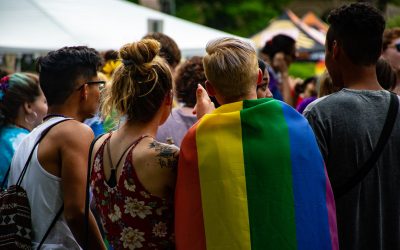Political correctness, or PC culture, is a term used to describe how public discourse has changed to avoid offending certain groups of people. It is often seen as excessive sensitivity to minority groups and their issues.
What is political correctness?
So, what is political correctness? The definition of political correctness can vary, but in general, it uses language that doesn’t alienate or offend people. The term is typically used to describe how people are careful to avoid offending others in their speech.
Political correctness aims to make sure that everyone feels comfortable and safe when expressing themselves. Still, there is much debate over whether or not it has actually accomplished this goal.
The rise of political correctness can be primarily attributed to the fact that society has become increasingly more aware of issues of diversity and inclusion. There is now a greater focus on ensuring that everyone feels comfortable and respected, regardless of their race, gender, or sexuality.
What are the key features of political correctness?
Political correctness has been defined in many different ways, but some key elements are generally accepted. First, political correctness is about being aware of the impact of one’s words and actions on others. It’s about being considerate and respectful of people from different backgrounds and avoiding offending or hurting anyone.
Second, political correctness is about using language that is inclusive and non-judgmental. For example, instead of saying, “that’s so gay”, you would say “, that’s so lame”. This terminology is meant to be more sensitive to people who identify as lesbian, gay, bisexual, and transgender (LGBT).
It’s not just about words; it’s also about action; instead of wearing blackface at Halloween, people should think about how harmful this is and not do it.
What are some of the criticisms of political correctness?
Many criticisms have been levelled against political correctness. Some people argue that it is excessive sensitivity to minority groups and their issues. Others (mainly right-wingers) claim that it results in censorship of important conversations and prevents people from speaking their minds freely.
Furthermore, there is concern that political correctness is becoming a tool the left uses to silence conservative voices. Finally, some people argue that political correctness actually does more harm than good, as it can lead to hypersensitivity and a lack of understanding and dialogue across different groups.
Political correctness, or the avoidance of words or actions that might offend people, has been a topic of heated debate in recent years. Critics argue that political correctness is actually doing more harm than good because it inhibits free speech and forces people to walk on eggshells. They say that political correctness is stifling creativity and leading to a generation of “snowflakes” who are too sensitive to handle any kind of criticism.
Another criticism of political correctness is that it’s a waste of time. Critics say that instead of focusing on correcting language and behaviour, we should be addressing the real issues facing society. They argue that by policing language and behaviour, we’re not solving any problems. They are wrong, of course. To make the world a more inclusive place, you have to start somewhere. Changing people’s behaviours is never a waste of time as it impacts future generations.
What are the benefits of political correctness?
There are many benefits to political correctness. Some of the most important benefits are that it helps create a more equal and inclusive society, helps prevent discrimination and harassment, and helps promote understanding and respect.
When people use respectful and inclusive language, it can help break down barriers. It can make people feel more accepted and respected, and it can help build bridges between different groups of people. In the workplace, political correctness can help create a more positive and productive environment.
Organisations that embrace political correctness tend to have a more diverse workforce, and they are more likely to attract customers and clients from different backgrounds. They may also have a better reputation and may be more successful in the long run.






Leave a Reply